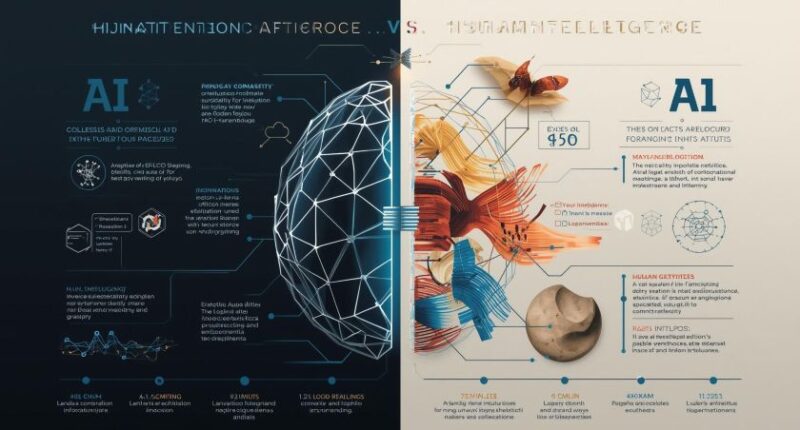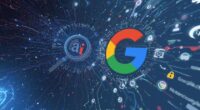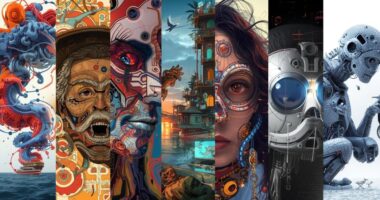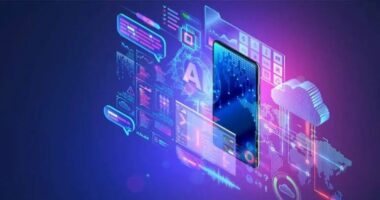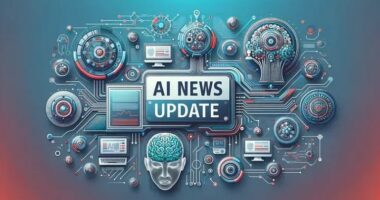Artificial Intelligence (AI) has become one of the most transformative technologies of our time, but it often sparks a crucial question: How does AI compare to human intelligence? While AI can process massive amounts of data, recognize patterns, and perform specific tasks faster than humans, it still lacks many qualities that define human cognition.
In this article, we will explore the key differences between AI and human intelligence, their strengths and weaknesses, and how they complement each other in shaping the future of work and society.
Understanding Intelligence in Context
Before comparing, it’s important to define both forms of intelligence.
-
Artificial Intelligence: Refers to computer systems or machines designed to perform tasks that typically require human intelligence, such as problem-solving, decision-making, and learning.
-
Human Intelligence: The cognitive capacity of humans to reason, learn from experience, adapt to new environments, and exhibit creativity, emotional understanding, and self-awareness.
While both share the goal of solving problems, their methods and abilities are fundamentally different.
Core Differences Between AI and Human Intelligence
1. Learning Ability
-
AI Learning
AI systems learn primarily from large datasets. Through machine learning algorithms and neural networks, AI can identify patterns and make predictions. However, its learning is task-specific—AI cannot easily transfer knowledge from one area to another without retraining. -
Human Learning
Humans learn through experience, observation, and reasoning. They can apply knowledge across domains, make intuitive leaps, and adapt quickly to new situations without starting from scratch.
👉 Key Insight: AI learns faster but only within limited boundaries, while humans learn slower but in more flexible and adaptive ways.
2. Creativity and Innovation
-
AI Creativity
AI can generate creative outputs such as art, music, and writing. Tools like DALL·E or ChatGPT can create visuals or text based on prompts. However, AI creativity is derivative, meaning it is based on existing data and patterns—it doesn’t originate entirely new concepts. -
Human Creativity
Humans have the unique ability to think abstractly, imagine scenarios, and innovate beyond existing knowledge. From inventing the wheel to developing quantum physics, human creativity often breaks boundaries that AI cannot predict.
👉 Key Insight: AI mimics creativity, but human imagination drives true innovation.
3. Emotional Intelligence
-
AI and Emotions
AI lacks genuine emotional understanding. While chatbots can simulate empathy with pre-programmed responses, they cannot truly feel emotions. Emotional AI can detect tone of voice or facial expressions, but it does not experience compassion, empathy, or moral reasoning. -
Human Emotions
Humans rely heavily on emotional intelligence in decision-making, relationships, and social interactions. Empathy, compassion, and moral judgment are deeply tied to human experience.
👉 Key Insight: Emotional depth is a purely human advantage that AI cannot replicate authentically.
4. Processing Speed and Memory
-
AI Power
AI systems can process gigabytes or even terabytes of data in seconds, far beyond human capacity. Machines never forget unless programmed to erase data, and they maintain consistent performance over time. -
Human Limitations
Human memory is imperfect—subject to forgetting, bias, and errors. Processing information also takes longer compared to AI.
👉 Key Insight: AI outperforms humans in speed, scale, and accuracy of data processing.
5. Adaptability
-
AI Adaptability
AI is limited to the tasks it was trained for. While it can adapt within its training boundaries, it struggles when facing completely unfamiliar situations. -
Human Adaptability
Humans thrive in uncertain, complex, and dynamic environments. They can invent new solutions when faced with problems they’ve never encountered before.
👉 Key Insight: Human intelligence is far more versatile than AI.
6. Decision-Making and Ethics
-
AI Decisions
AI makes decisions based on logic, algorithms, and statistical probabilities. It has no ethical compass—if data is biased, its decisions will also be biased. -
Human Decisions
Humans integrate logic with morality, emotions, and ethics. They consider cultural values, empathy, and long-term consequences when making decisions.
👉 Key Insight: AI decisions are efficient but lack ethical depth; human decisions are slower but morally grounded.
7. Self-Awareness
-
AI Self-Awareness
Currently, AI has no self-awareness or consciousness. It cannot reflect on its own thoughts or existence—it simply executes instructions. -
Human Self-Awareness
Humans possess consciousness, self-reflection, and awareness of mortality. This enables them to set personal goals, pursue meaning, and create philosophies.
👉 Key Insight: Self-awareness remains the most profound distinction between AI and humans.
Strengths of AI Over Humans
-
Handles repetitive and data-heavy tasks efficiently.
-
Processes and analyzes massive datasets at lightning speed.
-
Works 24/7 without fatigue or distraction.
-
Reduces human error in structured tasks.
-
Enhances productivity across industries like healthcare, finance, and manufacturing.
Strengths of Human Intelligence Over AI
-
Ability to think creatively and abstractly.
-
Emotional intelligence and moral judgment.
-
Adaptability to unpredictable environments.
-
Consciousness and self-awareness.
-
Cross-domain learning and intuitive reasoning.
Future Outlook: Collaboration Between AI and Humans
The future of intelligence is not about competition but collaboration. AI will handle large-scale data analysis, automation, and efficiency, while humans will lead in creativity, empathy, and strategic thinking. Together, they can achieve outcomes that neither could accomplish alone.
Examples include:
-
Healthcare: AI diagnosing diseases, while doctors provide compassionate patient care.
-
Education: AI personalizing lessons, while teachers mentor and inspire.
-
Business: AI analyzing market trends, while executives make ethical decisions.
Conclusion
The debate between AI vs. human intelligence highlights crucial differences: AI excels in speed, accuracy, and data-driven decisions, while humans dominate in creativity, adaptability, and emotional depth. Rather than replacing each other, AI and humans will work side by side, unlocking unprecedented opportunities.
Understanding these differences is essential not only for navigating the future of work but also for ensuring that AI is developed responsibly and ethically. The real power lies in creating a balance where machines handle efficiency, and humans bring meaning.
